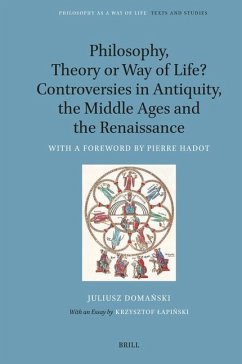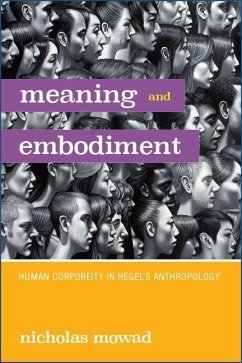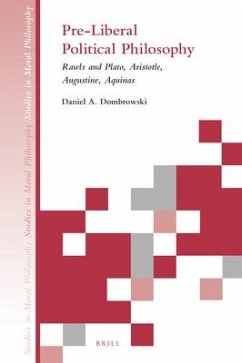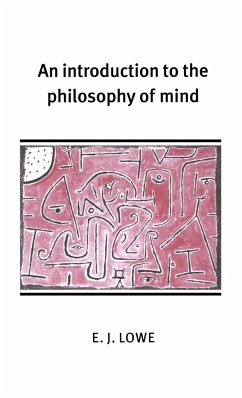
Avicenna's Theory of Intentionality
Versandkostenfrei!
Versandfertig in über 4 Wochen
162,99 €
inkl. MwSt.
Weitere Ausgaben:

PAYBACK Punkte
81 °P sammeln!
Intentionality - how thoughts represent reality - lies at the heart of many contemporary philosophical questions in the philosophy of mind. Over the past 20 years, Avicenna's conception of intentionality has received considerable scholarly attention. This book provides the first comprehensive analysis of Avicenna's theory of intentionality. Demonstrating how Avicenna distinguished theories of meaning (män¿ as signification) from intentionality ('the power to represent'), this work presents his theory of intentionality as a form of non-reductive representationalism. It argues that, for Avicen...
Intentionality - how thoughts represent reality - lies at the heart of many contemporary philosophical questions in the philosophy of mind. Over the past 20 years, Avicenna's conception of intentionality has received considerable scholarly attention. This book provides the first comprehensive analysis of Avicenna's theory of intentionality. Demonstrating how Avicenna distinguished theories of meaning (män¿ as signification) from intentionality ('the power to represent'), this work presents his theory of intentionality as a form of non-reductive representationalism. It argues that, for Avicenna, cognitive intentionality is explained by the existence of a representational power ultimately rooted in the rational soul as immaterial self-awareness. Furthermore, the book demonstrates that Avicenna's thoughts on intentionality cannot be neatly assimilated into contemporary naturalistic or phenomenal approaches, as his theory strikes a balance between the two. This book offers a novel and systematic perspective on contemporary debates surrounding Avicenna's theory of cognition and intentionality. Scholars and students of medieval philosophy, Islamic intellectual history, and philosophy of mind will find it essential reading. It is also suitable for academic libraries, philosophy publishers, and those exploring non-Western philosophical traditions.













